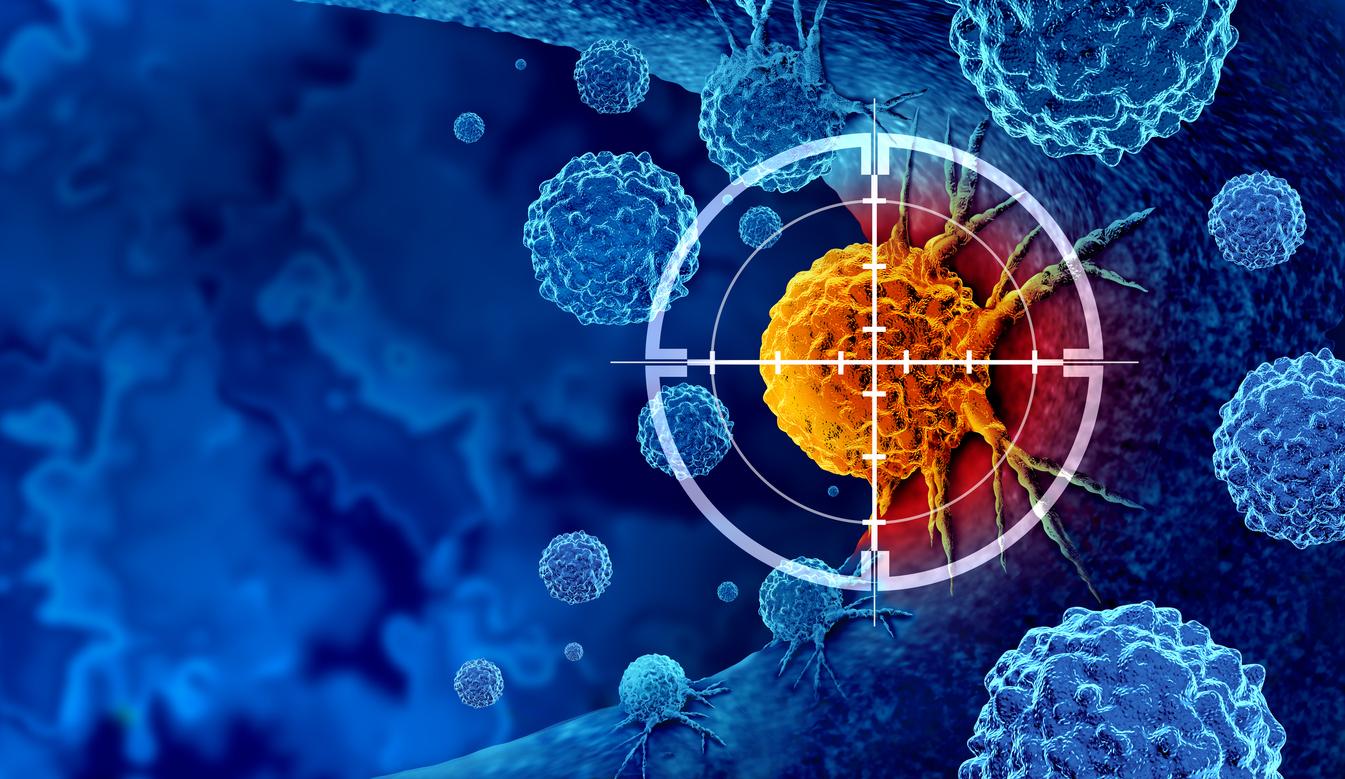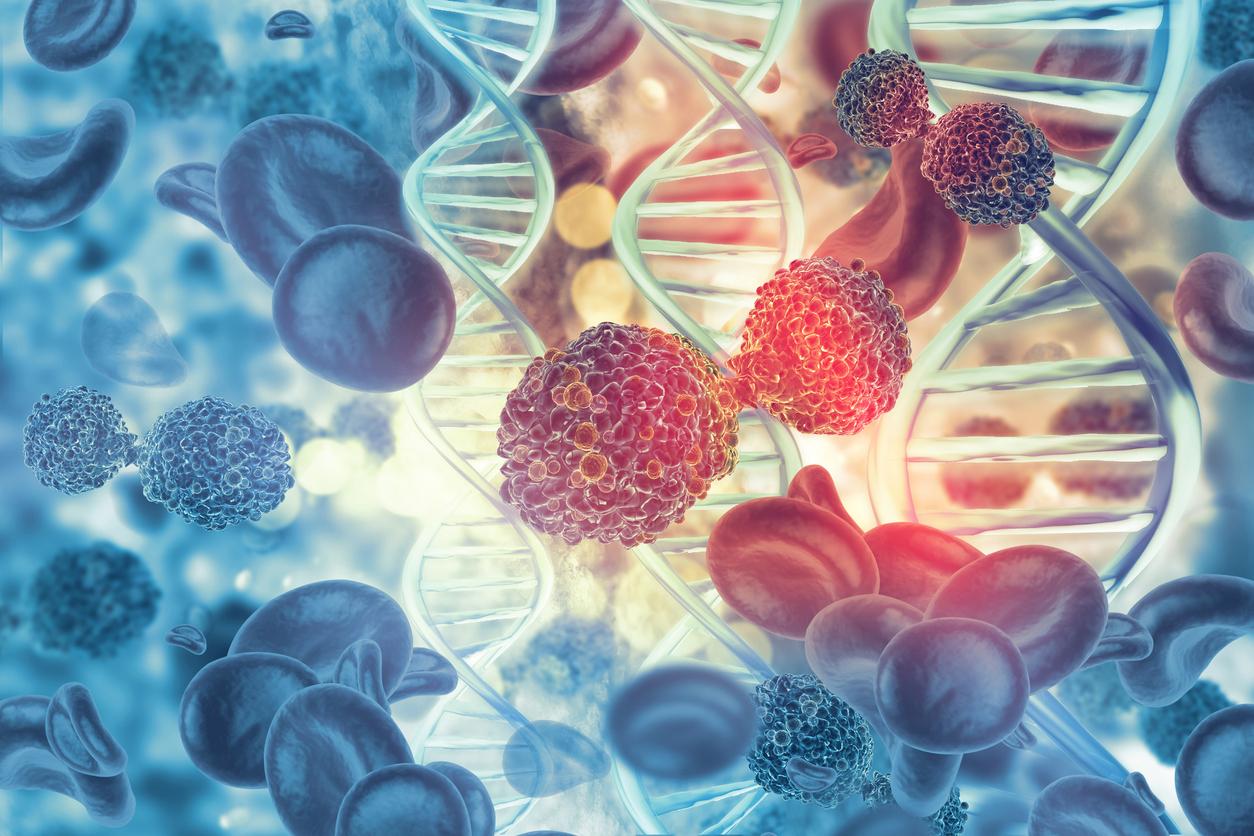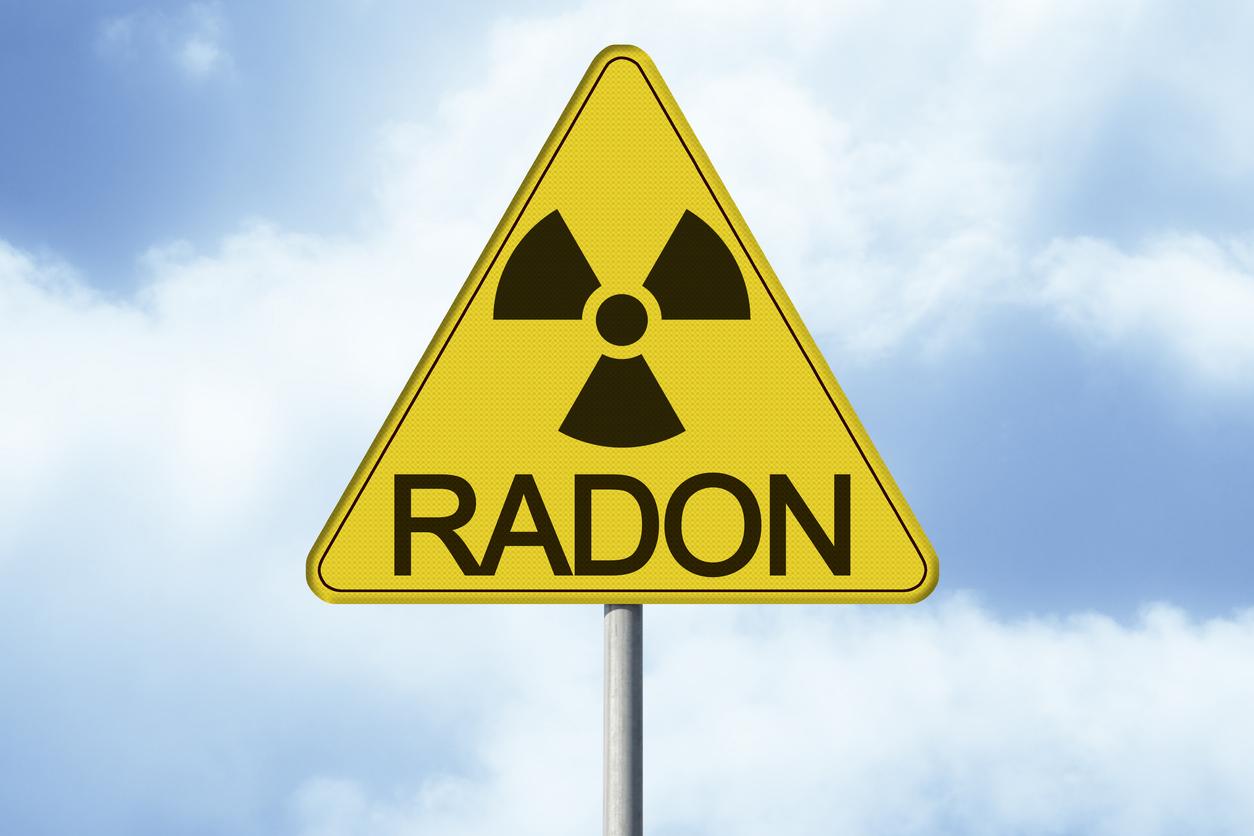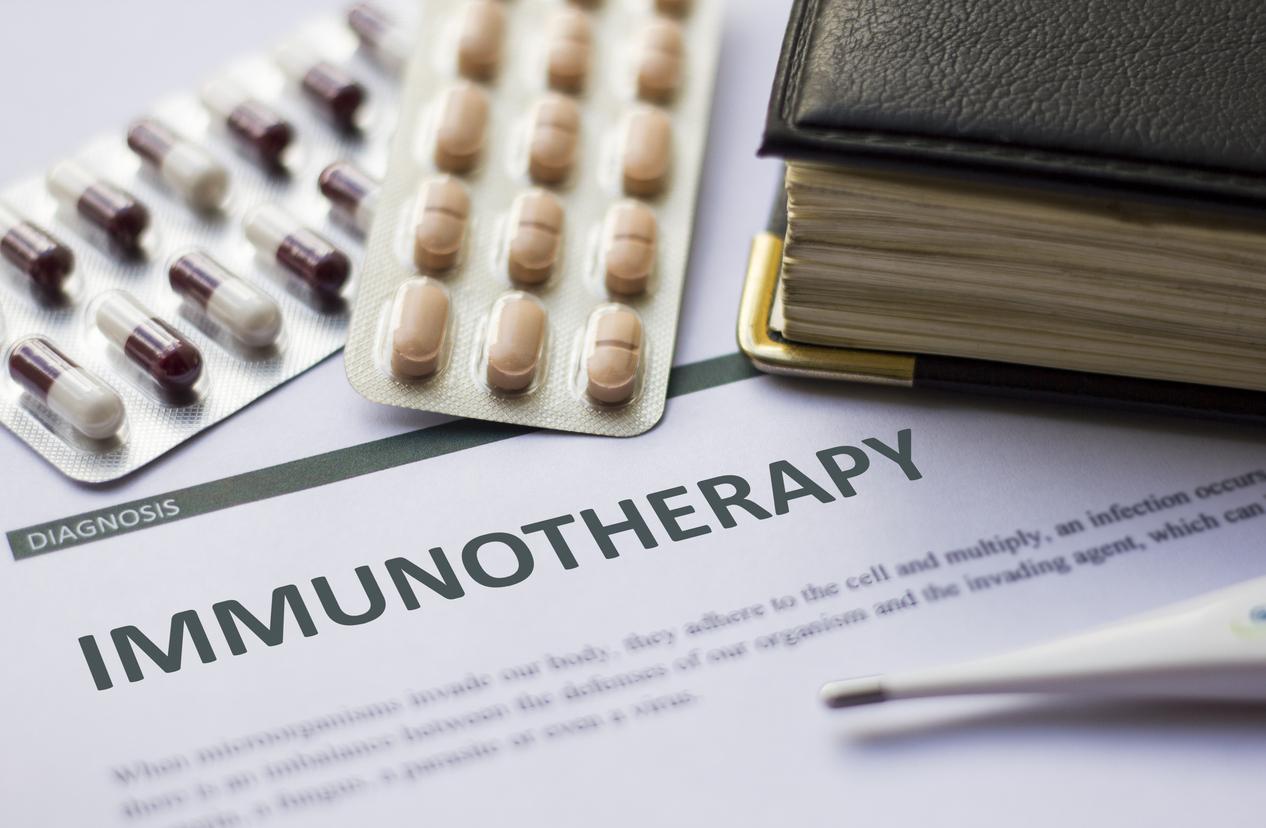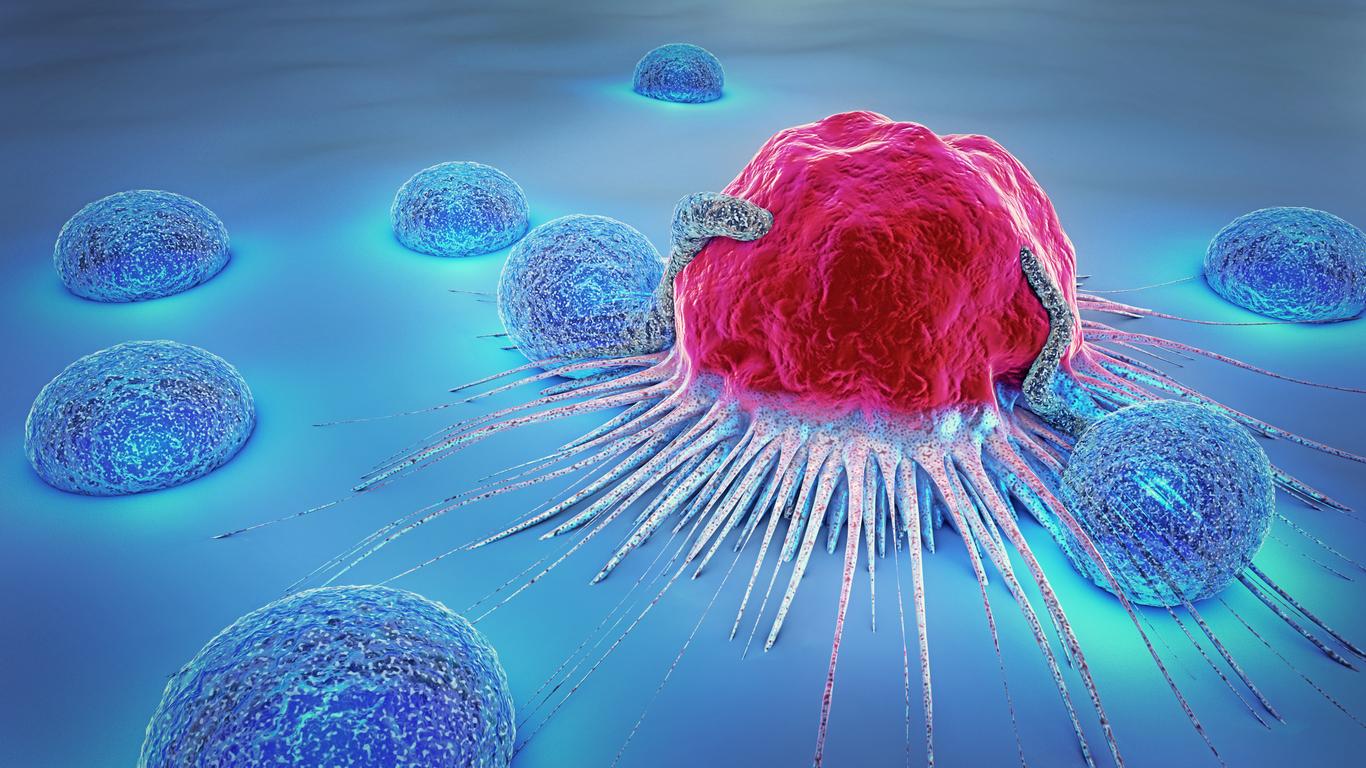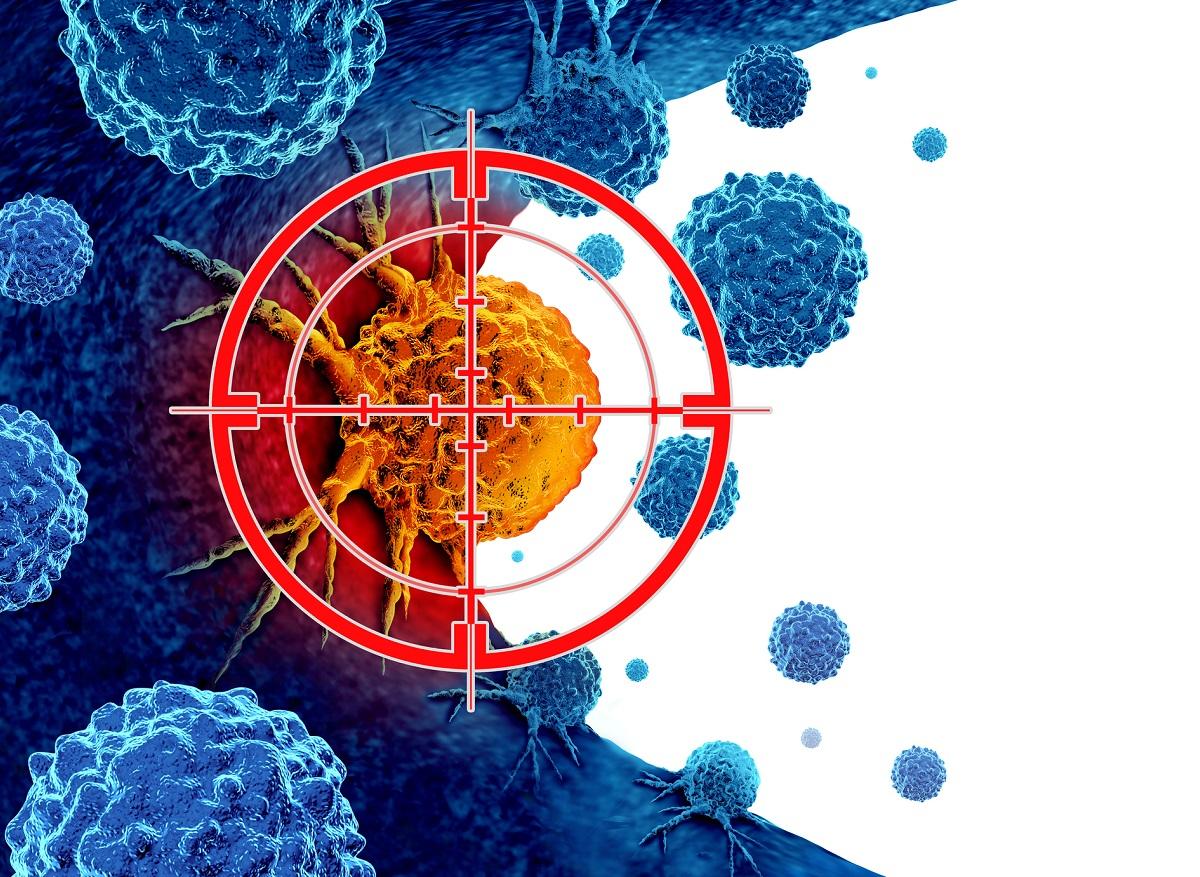Immunotherapy treatment is safe and effective for babies with an aggressive form of leukaemia, according to the results of a new clinical trial.
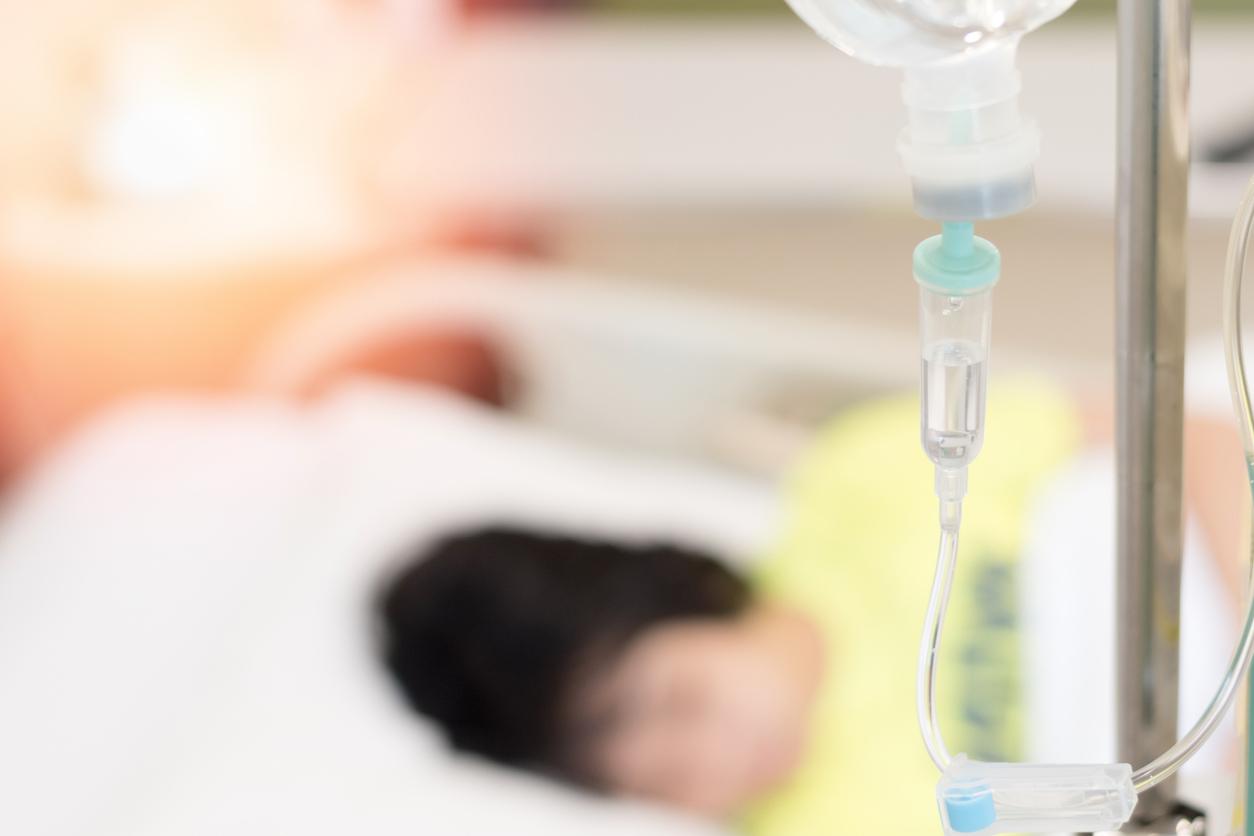
- Immunotherapy with the drug blinatumomab allows more babies with acute lymphoblastic leukemia to survive.
- By binding to leukemia cells on one side and immune cells on the other, blinatumomab allows immune cells to connect to leukemia cells and eliminate them.
- The results of this study are encouraging enough that all babies with this form of leukemia receive immunotherapy as part of standard treatment.
66% to 93% higher survival rates: these are the encouraging figures for immunotherapy treatment with the drug blinatumomab in children with an aggressive form of acute lymphoblastic leukemia (ALL), according to a new study published in the New England Journal of Medicine.
Pediatric leukemia: the drug blinatumomab helps fight cancer
Acute lymphoblastic leukemia (ALL) is cancer most frequently. He originates in blood stem cells. According to the researchers, blinatumomab allows immune cells to connect to leukemia cells and eliminate them.
In an international clinical trial on the safety and efficacy of blinatumomab in babies with ALL, conducted by researchers at the Princess Máxima Center for Pediatric Oncology in the Netherlands, 30 children in 9 countries were treated with the blinatumomab between 2018 and 2021. This was added to existing chemotherapy treatment, the protocol says Interfant-06.
Intensive chemotherapy to treat ALL works very well for half of children. But in the other half of the children, the disease recurs within two years, or the children die from the disease or sometimes from the side effects of therapy. “90% of recurrences, i.e. cases where the cancer comes back, occur within two years of treatment”, say the researchers. That’s why scientists are turning to immunotherapy, which acts on a patient’s immune system to help fight their disease, says theInserm.
Leukemia: immunotherapy leads to a better chance of survival
The team thus compared the results with those of 214 children who had been treated in previous years with the standard therapy Interfant-06: the same treatment, but without blinatumomab. And the results are final. Indeed, the survival rate of babies who received one month of immunotherapy in addition to chemotherapy was significantly higher: 93% of them were still alive two years after diagnosis, compared to 66% of children who did not. had been treated only with chemotherapy in the past.
In addition, two years after diagnosis, only 18% of babies treated with blinatumomab saw their cancer come back or died from their disease. These figures indicate a strong improvement compared to babies treated under the Interfant-06 protocol, without immunotherapy, who were 51% to experience a recurrence or death during the two years of chemotherapy treatment.
Dr Inge van der Sluis, pediatric oncologist and clinical pharmacologist at the Princess Máxima Center for Pediatric Oncology, The Netherlands, who led the clinical study, said: “It’s fantastic to see that we’ve made such progress for babies with ALL: adding immunotherapy to chemotherapy results in much better survival and fewer side effects. We already knew about this immunotherapy through studies carried out on other groups of patients. This is the first time we’ve tested blinatumomab as a first-line treatment, and for the first time in such young children..”
Based on these results, blinatumomab will now become a standard treatment worldwide for babies with this aggressive form of leukemia.










